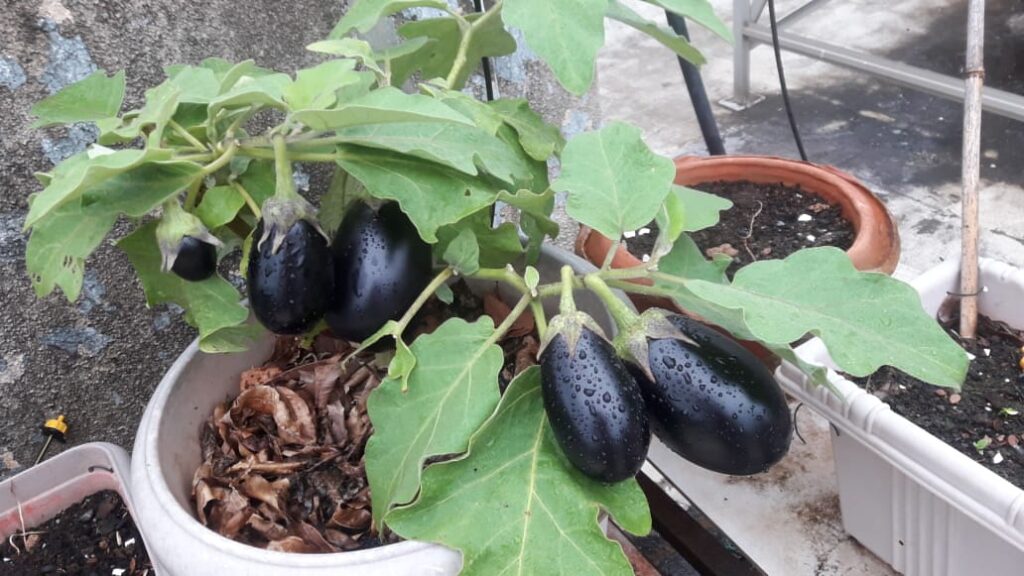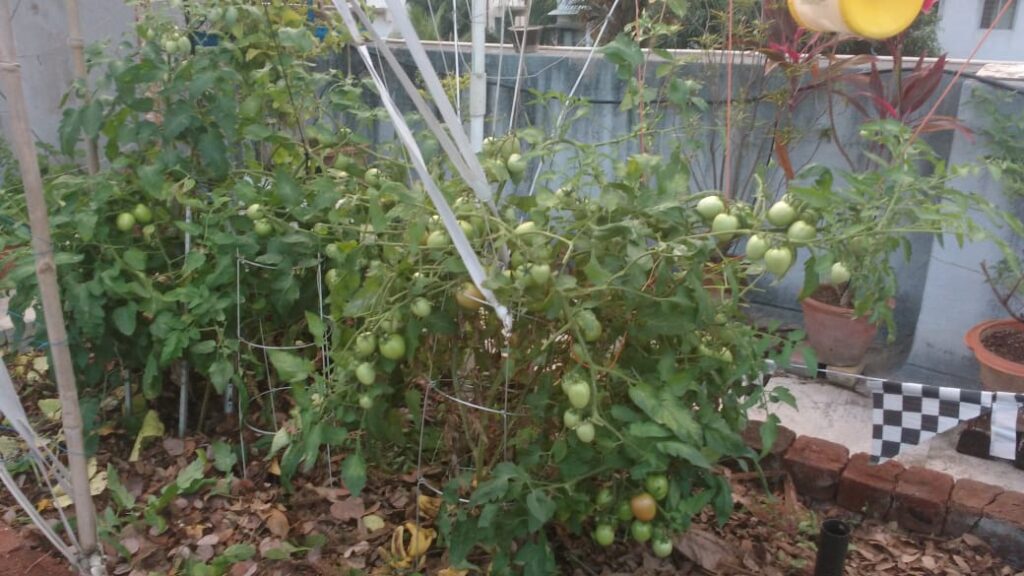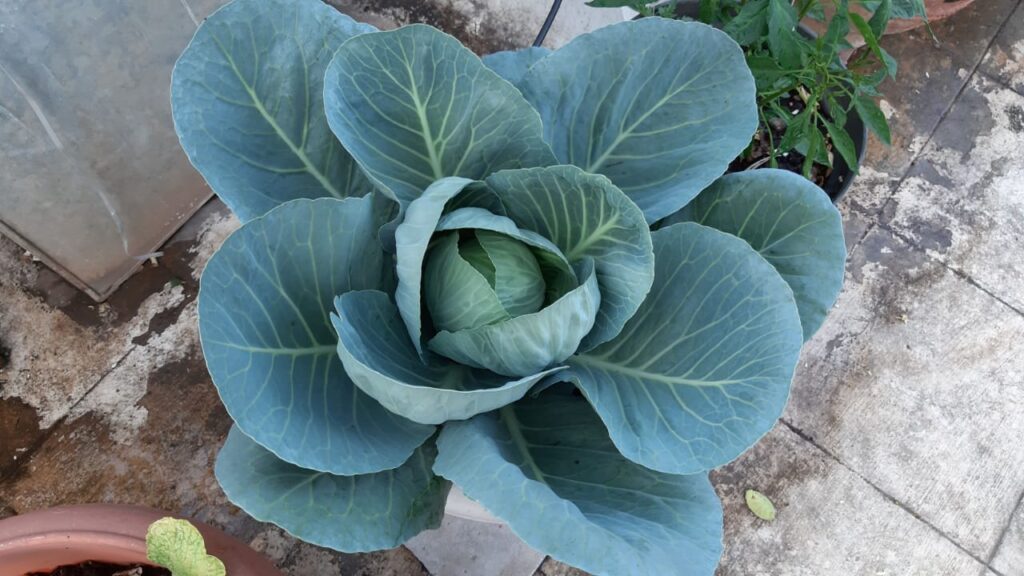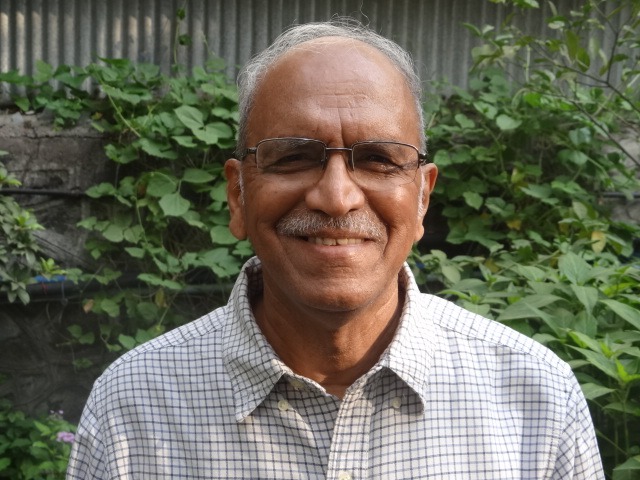Nowadays, home-gardening and urban farming are becoming popular trends. With new methods such as Aquaponics, hydroponics, urban farming is becoming easier for people. One such method is soil-less farming/gardening, which is becoming a new trend in urban areas. Vivek Bapat, a businessman based out of Pune is practicing soil-less farming in a total area of 160 sq. feet on his home and office terrace and growing all vegetables and fruits for his household consumption. Soil-less farming is a very innovative method where instead of soil, plants grow in beds which are made up of kitchen waste and dry leaves. Bapat feels that if soil-less gardening is practiced widely, the problem of bio-degredable waste will be solved to a great extent.
“I always loved gardening and once I saw a few seeds accidently germinating from my compost of my kitchen waste and it was intriguing for me. I started researching on the internet about the same. I started soil-less farming at a big level in 2006 after taking guidance from a scientist from Israel,” said Bapat.

Vivek Bapat also highlighted that soil-less farming is an eco-friendly method as it helps in solving the problem of waste management. He said, “Instead of soil, the growing medium is Humus generated from composting of dry leaves and kitchen waste. It can help to solve the problem of waste management, which is a major issue in urban areas. All the kitchen waste generated will be digested at the source without any special arrangement. Its a treat to watch birds visiting the bed for insects.”
Bapat also highlighted that due to such terrace gardening, the slab of the room remains cool and hence the room temperature also becomes much cooler.
While explaining the structure of soil-less farming, he said that a structure is prepared by painting the floor which will be used for gardening and plastic liner is put all over the floor. Red bricks are arranged like a wall to make a bed. The bed is then filled with dry leaves. Urine of native cow and cow dung cakes are used as a catalyst. In about two months, Humus is formed. Once the medium is ready, organic manure such as Shen khet and Jivamrut are added to it. Farming can be started by sowing small saplings. Soil-less gardening is effective for growing all kinds of vegetables and fruits.

Bapat said, “This type of farming can be done in most of the climatic conditions as it has no special requirements apart from sunlight. The compost is prepared by aerobic method hence it doesn’t smell bad so the earthworm in the compost can also stay.”
Bapat highlighted that this method of farming can also help in reducing soil erosion. He said, “People often bring soil from other places to grow plants at their homes while in this method soil is not used hence exploitation of soil is reduced. It also helps in reducing soil erosion. Apart from proper management of your kitchen waste, this kind of farming uses only organic manure and therefore the vegetables grown are free from chemicals and healthy to consume.”
“If this kind of farming is practiced in an area of 100 sq. feet terrace , it can easily produce all kinds of vegetables and fruits for a family of four for around 180 days in a year. It can digest kitchen waste of around 10 families. It signifies that this method is not only eco-friendly but also helps in growing healthy vegetables for our family at home. Around 25 per cent of total vegetables required will be grown at home and city dwellers will get fresh and 100 per cent chemical free vegetables. In a situation like the current pandemic where we faced the problem of availability of vegetables, it can help to combat any such unprecedented situations,” said Bapat.

“This kind of farming is not only eco-friendly but it is extremely affordable for everyone and vegetables are grown without chemicals which are healthy for consumption. Therefore, this type of farming can be a stepping stone towards sustainable development for a better future,” said Bapat as he signs off.
Written By: Selvi Pareek

